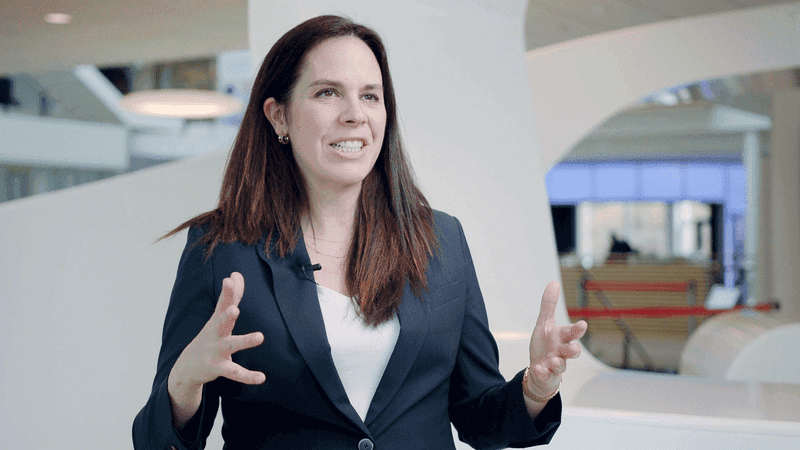When people talk about artificial intelligence, the conversation often centers on the speedy growth of large language models or how AI is becoming more commonplace as a tool in daily life. There is no doubt that AI has already made an impact on the corporate world, but I believe the biggest opportunity for AI is still waiting to be unlocked.
In my role, I spend a lot of time thinking about how technology can create real value for organizations. I believe the most material impact of AI will come from the transformation of corporate functions. All organizations require HR, finance, procurement, legal and IT to support and enable growth and efficiency. They are a vital part of how businesses achieve their long-term goals, and yet they have not seen the kind of disruption of other enterprise areas.
A Hidden Opportunity in Corporate Functions
Consider the abundance of tasks and processes that sit within finance, HR, procurement, legal, IT and administrative operations. These are vital functions, yet they are often weighed down by ways of working that haven’t changed as quickly as other areas of organizations — people still spend hours processing data, examining transactions, preparing reports and hunting for missing details. It is necessary work, and, increasingly, work that AI can handle, with more accuracy and at scale.
The ascendency of AI is not about replacing jobs. While it is true that some roles will disappear over time, the more valuable story is the augmentation of our human workforce. Across corporate functions, the human touch, creative insights and holistic view of the enterprise will continue to be fundamental criteria for success. The intent is for AI to help eliminate repetitive tasks, like manual data collating and mining, so that people can spend their energy on innovation, creative problem-solving and enhancing relationships with colleagues and clients.
I find this particularly exciting because the shift has already started. Today’s AI tools can do so much more than act as bots or serve as a smarter search engine — they can pull together data from multiple sources, analyze it and uncover insights that might be otherwise overlooked by humans. In procurement, for instance, AI tools can now provide a real-time view of fruit and vegetable pricing, ripeness and taste based on real-time aggregated data pulled from media organizations, governments and farmers. In HR, it can forecast workforce needs and suggest personalized learning pathways. In finance, it can detect fraud or predict cash flow with greater accuracy. Across business functions, the ongoing development of these tools will be transformative. The organizations that can best adopt and deploy them will be positioned for accelerated success.
Navigating Challenges and Governance
While speed of adoption will be key for enterprises to win, the real balancing act will be doing so while keeping organizational data safe and protected. How do we encourage people to use AI systems responsibly? How do we enable innovation without losing control of important and proprietary information? These questions don’t have simple answers.
AI has become part of everyday life far faster than many people expected. According to Gallup, AI use in the workplace has nearly doubled over the past two years. In some instances, organizations are only now beginning to think about official guidance for language models like Copilot and ChatGPT, navigating a fine line between protecting confidentiality of information and enabling employees to work more efficiently.
I often compare this moment to the early days of e-commerce. Retailers initially feared that customers would walk into stores to research products but then buy those products online. The early strategies that some retailers adopted relied on limiting bandwidth in their built environment, which did not pay off in the long run. Over time, the more successful retailers were those who willingly embraced the trend and found ways to turn it into a business advantage.
When it comes to AI, the question isn’t how to stop it. The question is how to make it a secure enabler of business success while also giving people new avenues for productivity and creativity.
Helping Humanity in an AI World
Another key reflection is deciphering which workstreams remain uniquely human as AI becomes more capable. If anyone can produce a perfectly written report or proposal with AI, then what sets people apart? In my view, it comes down to creativity, relationships and the ability to ask the right questions.
Relationships and authenticity will become even more important in the coming years. Imagine a world where every company can generate an excellent RFP using AI. What will differentiate businesses then? It will be the people, the chemistry in meetings and the trust built through real human interactions.
I believe that, in an unexpected way, artificial intelligence might push us back toward a more human-centered world. As AI takes over routine tasks, human connection becomes a stronger differentiator that’s even more difficult to replicate. At ISS, we think about this every day. We are deeply focused on how we combine human expertise with technology. Our goal isn’t to chase technology for its own sake but to use it to make work better and more meaningful.
For people who are starting their careers or thinking about how to adapt, my advice is simple: stay curious. Experiment with AI tools, learn how they work and understand both the opportunities and the risks. The future will belong to those who know how to automate manual work, can ask the right questions of technology and remain deeply committed to challenging the outcome it produces.
AI is no longer just a tool — it’s becoming a defining force in how business gets done. Its greatest power lies in transforming the hidden work that supports every organization. If we get it right, AI won’t just make businesses more efficient. It will help people rediscover what makes work truly human.
Want to learn more about AI’s scalability for office functions and hiring? Watch this quick video on how ISS partners with Paradox to make it happen.

